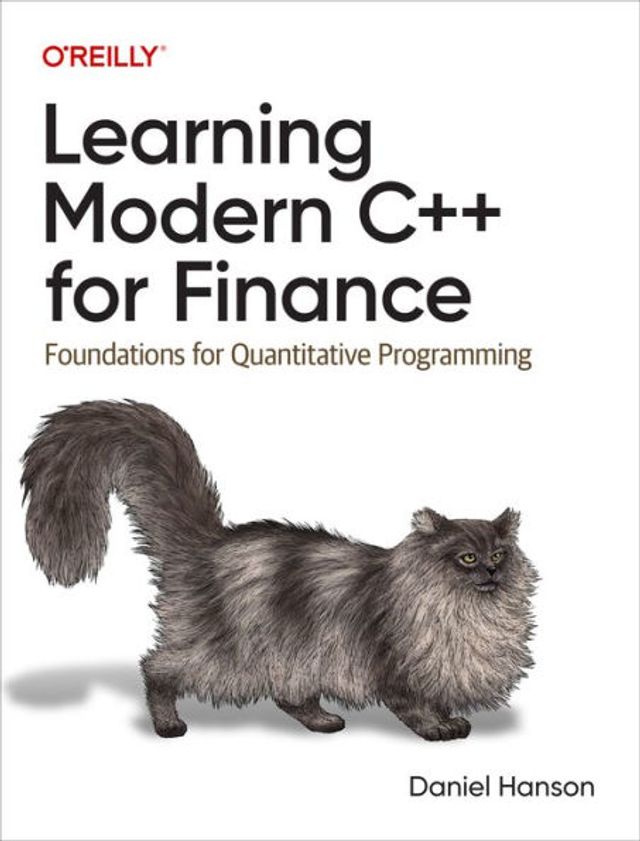Home
Learning Modern C++ for Finance: Foundations Quantitative Programming
Barnes and Noble
Learning Modern C++ for Finance: Foundations Quantitative Programming
Current price: $65.99


Barnes and Noble
Learning Modern C++ for Finance: Foundations Quantitative Programming
Current price: $65.99
Size: Paperback
Loading Inventory...
*Product information may vary - to confirm product availability, pricing, shipping and return information please contact Barnes and Noble
A lot of financial modeling has gravitated toward Python, R, and VBA, but many developers hit a wall with these languages when it comes to performance. This practical book demonstrates why C++ is still one of the dominant production-quality languages for financial applications and systems. Many programmers believe that C++ is too difficult to learn. Author Daniel Hanson demonstrates that this is no longer the case.
Financial programmers coming from Python or another interpreted language will discover how to leverage C++ abstractions that enable safer and quicker implementation of financial models. You'll also explore how popular open source libraries provide additional weapons for attacking mathematical problems. C++ programmers unfamiliar with financial applications will also benefit from this handy guide.
Learn C++ basics: syntax, inheritance, polymorphism, composition, STL containers, and algorithms
Dive into newer features and abstractions including functional programming using lambdas, task-based concurrency, and smart pointers
Employ common but nontrivial financial models in modern C++
Explore external open source math libraries, particularly Eigen and Boost
Implement basic numerical routines in modern C++
Understand best practices for writing clean and efficient code
Financial programmers coming from Python or another interpreted language will discover how to leverage C++ abstractions that enable safer and quicker implementation of financial models. You'll also explore how popular open source libraries provide additional weapons for attacking mathematical problems. C++ programmers unfamiliar with financial applications will also benefit from this handy guide.
Learn C++ basics: syntax, inheritance, polymorphism, composition, STL containers, and algorithms
Dive into newer features and abstractions including functional programming using lambdas, task-based concurrency, and smart pointers
Employ common but nontrivial financial models in modern C++
Explore external open source math libraries, particularly Eigen and Boost
Implement basic numerical routines in modern C++
Understand best practices for writing clean and efficient code

















